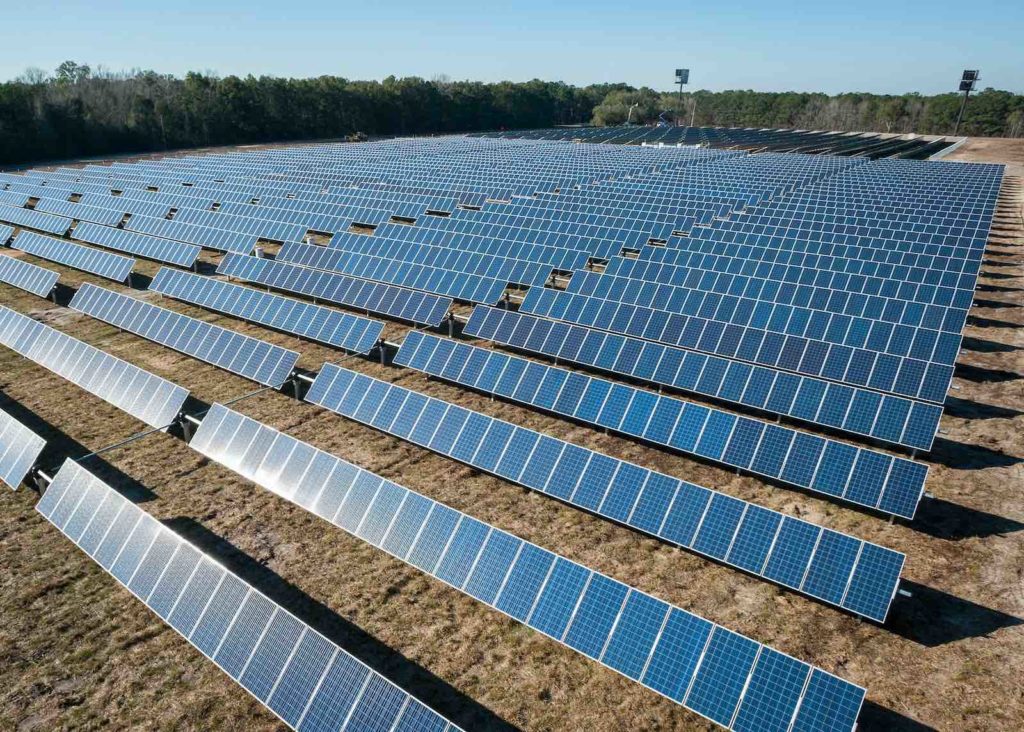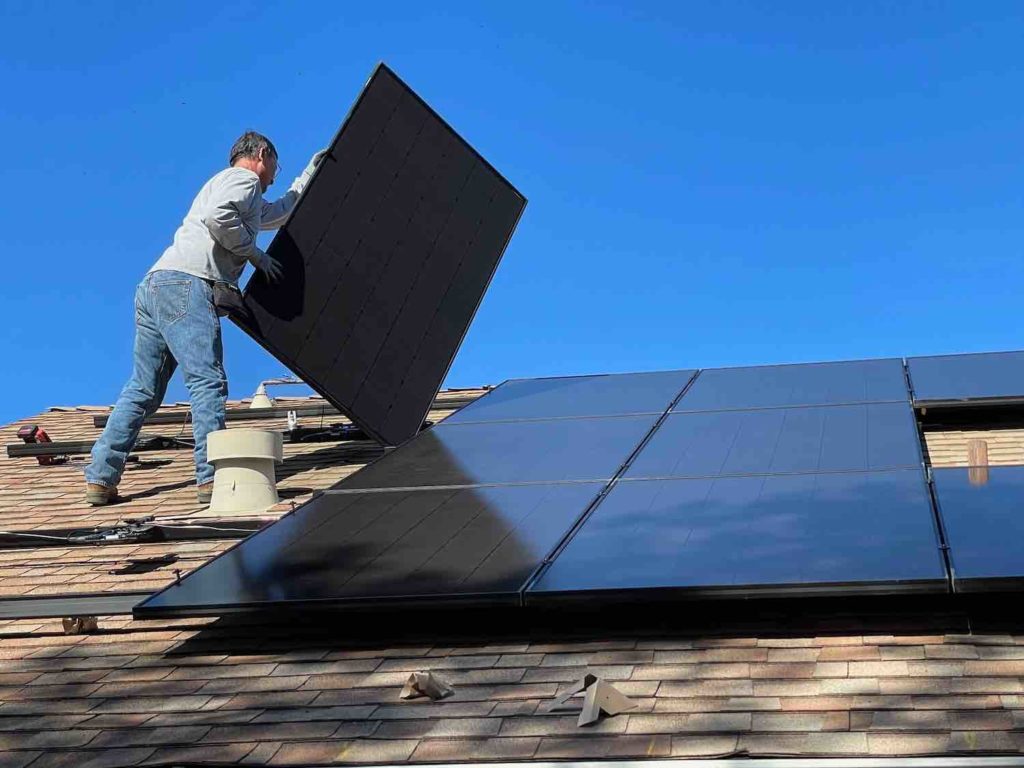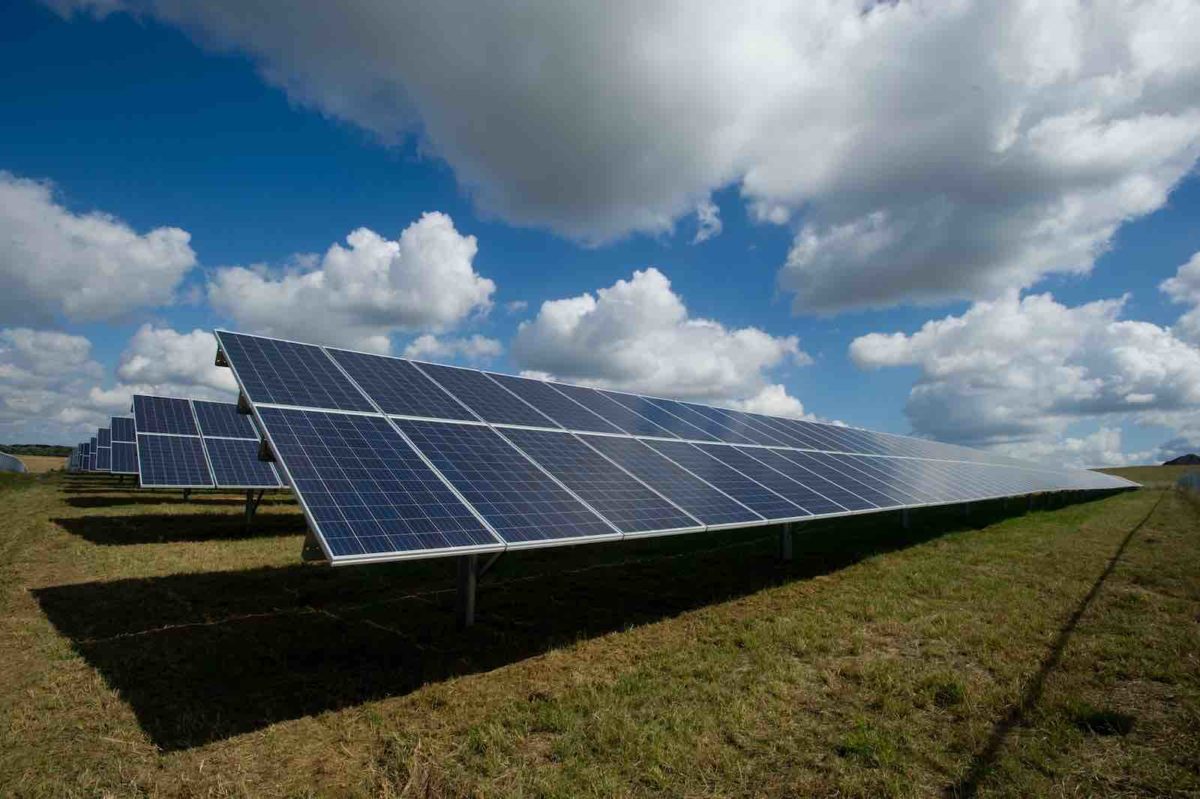As farmers we are always looking for ways to save money and increase our profits. One way we can do this is by using solar panels to power our farms.
Solar energy is a renewable resource, which means it can be used over and over again. This makes it a very sustainable option for powering farms. In addition, solar energy is reliable and affordable.
Doing a solar installation can be significantly increase yields for your farm (or even a ranch!) without taking up too much land.
Why solar energy is a good choice for farmers
There are a few reasons why solar energy is a good choice for farmers.
First, solar energy is reliable. You can count on sunlight in some regard every day, which makes it a very dependable source of energy.
Second, solar energy is affordable. Once you have installed the solar panels, the energy they produce is free! This makes solar a very cost effective choice for powering your farm.
Third, solar energy is sustainable. Solar energy is a renewable resource, which means it can be used over and over again. This makes it a very sustainable option for powering farms.
Finally, solar energy is environmentally friendly. Solar panels don’t produce any emissions, which means they are a great choice for farms that want to be environmentally friendly and help against climate change.
How solar energy can help your farm
There are a few ways that solar energy can help your farm. First, solar energy can be used to power your farm’s buildings and equipment. Second, solar energy can be used to irrigate your crops. Third, solar energy can be used to create renewable energy.
What installing solar panels does for your farm
- You can use the solar energy harvested to power your buildings and technology
- You can use solar energy to irrigate your crops
- Solar energy obviously create renewable energy, great for the environment!
The benefits of on-grid vs off-grid solar power for your farm
There are two main types of solar power: on-grid and off-grid. On-grid solar power is connected to the electricity grid, while off-grid solar power is not.
Which type of solar power that will benefit your farm depends on a few factors, such as how much energy you need and what kind of regulations your state or country (a big hello to all our international readers!) has about solar power.
On-grid solar power is a great choice for farms that need to generate a lot of energy. When your farm is connected to the electricity grid, you can sell any excess energy you produce back to the grid. This can help you save money on your electric bill and even create new businesses!
Off-grid solar power is a good choice for farms that don’t need a lot of energy. It is also a great option for farms that are in remote areas, where there is no electricity grid to connect to.
Off-grid solar panels usually come with a battery, which stores the energy produced by the solar panels. This battery can then be used to power your farm’s electrical devices. The one thing to consider is to make sure you can generate enough electricity to power the technology used by your farm.
If you’re more interested in going off-grid than installing a solar system for your farm, read this incredible guide by Zoe: Living off grid in homestead
How to choose the right solar system for your farm
When you are choosing a solar system for your farm, there are a few things you need to consider.
The first is how much energy you need. You need to make sure the solar system you choose can generate enough energy to meet your needs of consumption.
The second thing to consider is the type of sunlight your farm receives. Not all solar systems are the same, and some are better suited for certain types of light from the sun.
The last thing to consider is your budget. Make sure you find a solar system that fits within your budget.

How much farmland will solar panels take up to generate enough power?
Solar panels don’t take up a lot of space, and you can usually install them on top of your existing buildings or in open fields.
The amount of land they will take up depends on the size of the solar system you choose. Most solar systems are between 10 to 15 kilowatts, which means they will take up around 1,000 to 1,500 square feet of land.
This is a small amount of land compared to the amount of land a traditional wind turbine or solar farm would take up.
As a comparison, the average American home needs between 19 and 23 solar panels based on the average electricity usage of 877 kilowatt-hours (kWh) per month.
To determine your average energy requirements, look at past utility bills. You can calculate how many solar panels you need by multiplying your farm’s hourly energy requirement by the peak sunlight hours for your area and dividing that by a panel’s wattage.
Use a low-wattage (150 W) and high-wattage (370 W) example to establish a range (ex: 17-42 panels to generate 11,000 kWh/year).
Note that the size of your roof (e.g. your poultry roof) and how much sunlight your roof gets are factors as well.
How Much Does It Cost to Install Solar Panels on a Farm?
The cost of installing solar panels on a farm varies depending on the size of the system, the type of solar panels, and the location of the farm.
However, on average, it costs between $3 and $8 per watt to install a solar panel system. This means that a small 10-watt system would cost between $30 and $80 to install, while a large 1,000-watt system would cost between $3,000 and $8,000.
The costs of solar panel systems have been dropping in recent years, and they are expected to continue dropping in the future. This means that it is becoming more and more affordable to install solar panels on your farm.
One normally estimate that the lifespan of solar systems is about 30 years.
What you need to know about installing solar panels on your farm
There are a few things you need to know before installing solar panels on your farm.
The first is that you need to have enough space to install the panels.
The second is that you need to have a good sunny location where the panels can receive direct sunlight.
And lastly, you need to have a good understanding of your farm’s energy needs so that you can choose the right size solar system.

Can I Farm the Land Once the Panels Are Uninstalled?
Yes! The land will be ready to farm once the solar panels are uninstall.
Will Solar Panels Contaminate My Soil?
No! Solar panels will not contaminate your soil. In fact, solar panels can actually help to improve the quality of your soil. They do this by providing a shaded area underneath the panels where manure and other organic materials can decompose.
This helps to create a healthy soil environment and increase the fertility of your land.
Can I grow crops under solar panels?
Yes, you can grow crops under solar panels. However, you will need to make sure that the plants have enough space to grow and that the panels are not blocking too much sunlight from reaching them.
You may also need to water the plants more often if they are growing in a shaded area.
Are Animals Affected By Solar Panels?
No, animals are not affected by solar panels. Solar panels do not produce any noise or radiation, and they will not harm or disturb the animals in any way.
In fact, solar panels can actually help to reduce stress in animals by providing them with a shaded area to relax in.
Do you need planning permission for solar panels in field?
Solar PV panels are known as a “permitted development”. This means that for most domestic properties, planning permission is not required. You will need to check with your local council to see if this is the case for your farm.
If you do need planning permission, the process is usually quite simple and can be completed in a few weeks.
How to maintain your solar panels
Once your solar panel system is installed, you will need to maintain it in order to keep it running efficiently. This includes cleaning the panels regularly and checking the inverter for any signs of damage.
You can hire a professional to clean and maintain your system, or you can do it yourself. If you choose to do it yourself, make sure you are familiar with the proper safety procedures.
The main pros and cons of installing solar panels on your farm
Pros
- Solar energy is reliable
- Using solar power is affordable
- Solar energy is sustainable
- It’s environmentally friendly!
Cons
- It may require a lot of space/take up farmland that you want to use for your agriculture business
Solar farms and Solar parks: Is this an option to explore?
Yes, solar farms and solar parks are an option to explore if you are looking to install a large solar panel system.
A solar farm is a large-scale solar power plant that uses rows of panels to generate electricity. A solar park is an area of land that has been set aside for the development of solar energy projects.
How much land is needed for a solar farm ?
A solar farm typically requires at least 10 acres of land. However, this can vary depending on the size and type of solar farm.
The main difference between a solar farm and a solar park is that a solar farm is a large-scale solar power plant that uses rows of panels to generate as much electricity as possible.
A solar park is an area of land that has been set aside for the development of solar energy projects.
Advantages and disadvantages of solar farms
The main advantages of solar farms are that they are a renewable source of energy, they are environmentally friendly, and they can help to reduce greenhouse gas emissions. The main disadvantage of solar farms is that they require a lot of land to operate.
Conclusion
Solar power is a renewable source of energy that can help reduce greenhouse gas emissions. Solar farms are an option to explore if you’re looking for large solar panel systems, but they do require a lot of land and may not be the best choice for all farmers.
The main advantage to solar panels is how environmentally friendly they are by reducing your carbon footprint while providing clean electricity or heat 24 hours per day with no pollution at the point of use.
FAQ – Should I install solar panels on my farm?
Solar power can help farmers save money on their energy bills, reduce greenhouse gas emissions, and improve the fertility of their soil.
Solar panels are used by farmers to generate electricity and to power equipment like irrigation systems.
A solar panel system that is large enough to power a farm will typically require at least 10,000 panels.
Yes, you can put solar panels on agricultural land as long as they are not blocking too much sun from reaching the crops.
There is no specific answer to this question, as it will vary depending on the size and type of solar panel system. However, a large solar panel system that is designed for a farm may require up to 10 acres of land.
Solar farming works by using solar panels to convert sunlight into electrical energy. The electricity generated by the solar panels can be used to power equipment and facilities on the farm, or it can be sold to the local utility company.

3 replies on “Solar for Farmers: Take the first step towards using renewable energy for your farm”
[…] resources and making the most of your resources. You can do this by harvesting rainwater, using solar energy, or growing your own […]
[…] burn longer since it will gradually devour the wood the denser the wood is. All of us who rely on renewable energy sources must be aware of the different trees for […]
[…] you’re not connected to a public utility power line. You have a generator to provide power or solar panels that charges batteries. Off grid living can also mean you’re far enough away from city water that […]